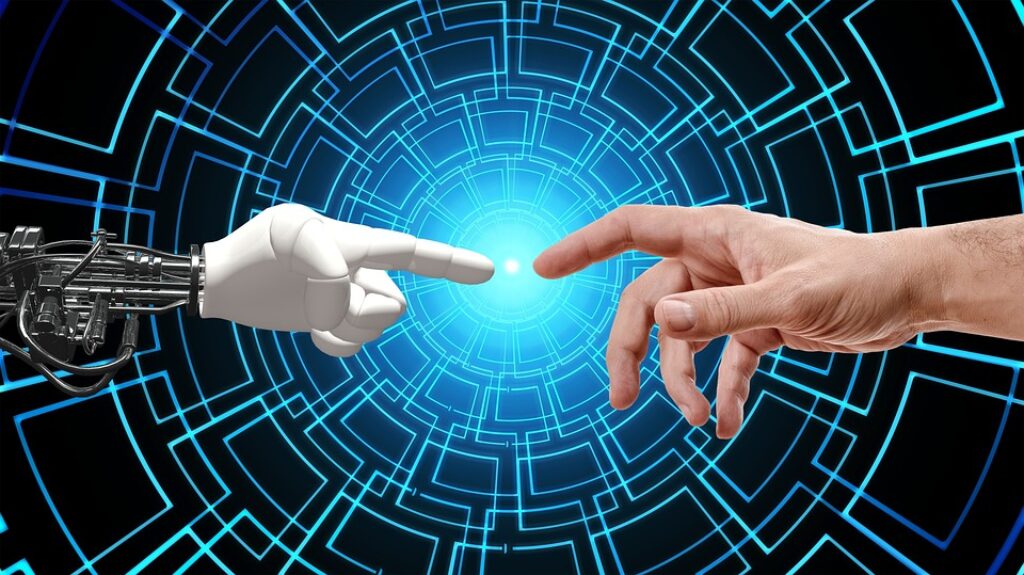Harnessing the Power of AI: Innovations in Education
In recent years, Artificial Intelligence (AI) has revolutionized various industries, and education is no exception. AI is transforming the way we teach and learn by providing personalized and adaptive learning experiences. Educators and students alike are benefitting from AI-powered tools and technologies that enhance efficiency and effectiveness in the classroom. Let’s explore some of the innovative ways AI is being harnessed in education.
AI-powered Personalized Learning
One of the most significant advantages of AI in education is its ability to personalize learning experiences based on the individual needs and abilities of students. AI algorithms can analyze huge amounts of data, including progress reports, test scores, and student profiles, to create tailored learning paths for every student. This ensures that students can learn at their own pace and receive targeted support when needed.
Adaptive learning platforms powered by AI use intelligent algorithms to identify knowledge gaps and deliver personalized content and exercises to help students master challenging concepts. From intelligent tutoring systems to personalized quizzes, these AI-driven tools enhance student engagement and knowledge retention.
Smart Content Creation and Delivery
AI has also paved the way for smart content creation and delivery in education. Content creation can be time-consuming for educators, but with AI technologies, this process becomes streamlined and automated.
AI-powered algorithms can create interactive and engaging educational content, such as videos, presentations, and quizzes, in a fraction of the time it would take a human. These tools utilize natural language processing and machine learning techniques to generate high-quality educational materials that cater to different learning styles. Such content is not only visually appealing but also highly effective in conveying complex concepts to students.
Moreover, AI-powered delivery platforms can analyze students’ interactions with educational content and provide real-time feedback and recommendations. These platforms identify areas where students struggle and suggest additional resources or alternative explanations to enhance understanding.
Virtual Assistants and Chatbots
Virtual assistants and chatbots are becoming increasingly prevalent in the education sector, offering 24/7 support to students and educators alike. These AI-powered tools can answer FAQs, provide explanations, offer guidance, and even grade assignments.
Virtual assistants are capable of understanding natural language and responding in a conversational manner, making them highly accessible and user-friendly. They can assist students with homework assignments, help with research, and provide instant feedback. Additionally, chatbots can alleviate the pressure on educators by automating routine administrative tasks and freeing up their time for more meaningful interactions with students.
AI for Administrative Tasks and Decision-making
AI is not only transforming the learning experience but also revolutionizing administrative processes in education. AI-powered systems can automate administrative tasks such as scheduling, grading, and data management, liberating educators from time-consuming paperwork.
Furthermore, AI algorithms can analyze extensive educational data to generate insights and support decision-making processes. These insights can help identify patterns, predict student performance, and optimize curriculum development. By harnessing AI for administrative tasks and decision-making, educational institutions can streamline operations and focus on providing quality education.
FAQs about AI in Education
1. Is AI replacing teachers in the classroom?
No, AI is not meant to replace teachers but to complement their efforts. AI-powered tools assist teachers in delivering personalized content, analyzing student performance data, and automating administrative tasks, allowing them to focus on individualized instruction and fostering deep learning.
2. How secure is student data when using AI-powered tools?
AI-powered tools take data privacy and security seriously. Educational technology companies adhere to strict privacy regulations and employ robust encryption techniques to protect student data from unauthorized access or breaches.
3. Can AI help students with special needs?
Yes, AI can be a valuable tool for students with special needs. Adaptive learning platforms powered by AI can customize learning experiences to suit individual needs, providing additional support and resources when necessary, enhancing inclusivity in education.
4. Is AI affordable for all educational institutions?
AI technologies in education span a wide range of affordability. While some advanced systems may be costly, there are also many low-cost or free AI-powered tools available for educators. Educational institutions can select AI solutions that align with their budgetary constraints and specific needs.
5. How will AI impact employment in the education sector?
While AI may automate certain administrative tasks, it also creates new opportunities for educators. AI enables teachers to focus more on personalized instruction, mentorship, and creative problem-solving rather than routine administrative duties, ultimately enhancing the effectiveness of the education sector.
As AI continues to evolve, its potential for transforming education remains immense. By harnessing the power of AI, educators can provide personalized learning experiences, streamline administrative processes, and unlock new possibilities for student success. Embracing AI in education equips students with the skills they need to thrive in an increasingly digital and fast-paced world.
